Can a house collapse from foundation issues? The answer to this question is yes, it is possible for a home to collapse as a result of foundation problems. In fact, foundations are one of the most important parts of a house and if they are not properly maintained or repaired, they can lead to some very serious structural damage. This guide will provide you with all the information you need to know about foundation problems and what you can do to prevent them from causing your home to collapse.
What Does It Mean To Have Foundation Issues?
Foundation problems occur when the structure of a home’s foundation is not strong enough to provide adequate support for the building. This can be caused by a variety of factors, including insufficient construction materials and techniques, poor soil conditions, or shifts in the underlying ground.
Contact an experienced contractor right away as delays can worsen any existing damage. A reputable contractor will be able to assess your property’s condition and advise on potential solutions. Repairing foundation issues can range from simple fixes such as shoring up weak points and replacing damaged materials to more complex solutions such as underpinning, helical piers, or wall anchors.
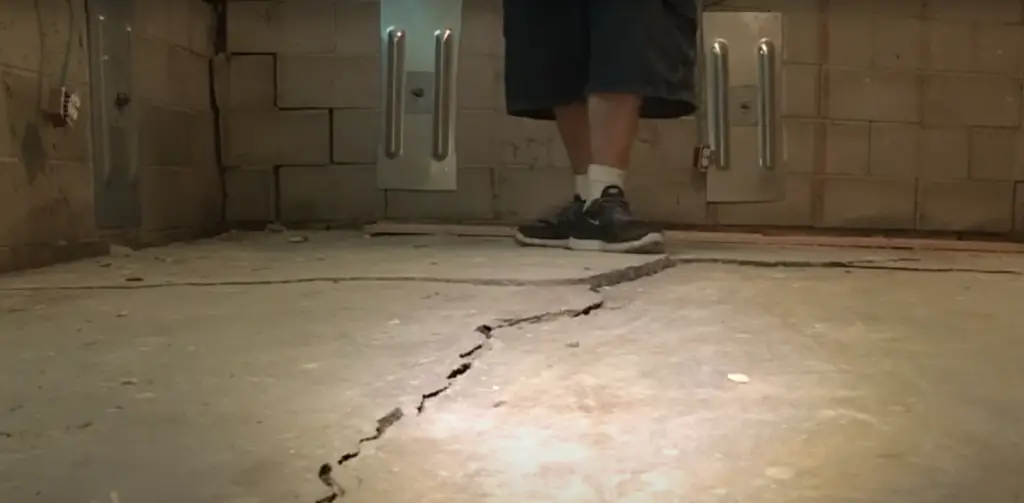
Can a House Collapse From Foundation Issues?
In short, yes — if left unaddressed for long enough, foundation problems can lead to house collapse. If a home’s structure is not adequately supported by its foundation, it could experience significant damage or even total failure under extreme conditions (such as an earthquake or heavy storms).
Of course, it is important to note that the likelihood of your house collapsing entirely due to foundation issues is very low — there are numerous warning signs before the point of no return and plenty of steps you can take to prevent it from getting to that point.
For instance, if you notice any of the warning signs discussed previously (e.g. cracks in walls, unlevel floors) or suspect your house may have foundation issues, it is important to contact a professional as soon as possible. Catching problems early can help you avoid costly repairs and ensure the safety of your home’s structure for years to come. Additionally, any existing damage should be treated before starting any renovations or construction on your property — this will help protect against further collapse and provide a strong base for new projects.
Ultimately, while foundation issues can lead to house collapse over time if not properly addressed, they are usually preventable with proactive maintenance and repair. If you are ever in doubt, contact a contractor who can provide professional advice and help ensure the structural integrity of your home.
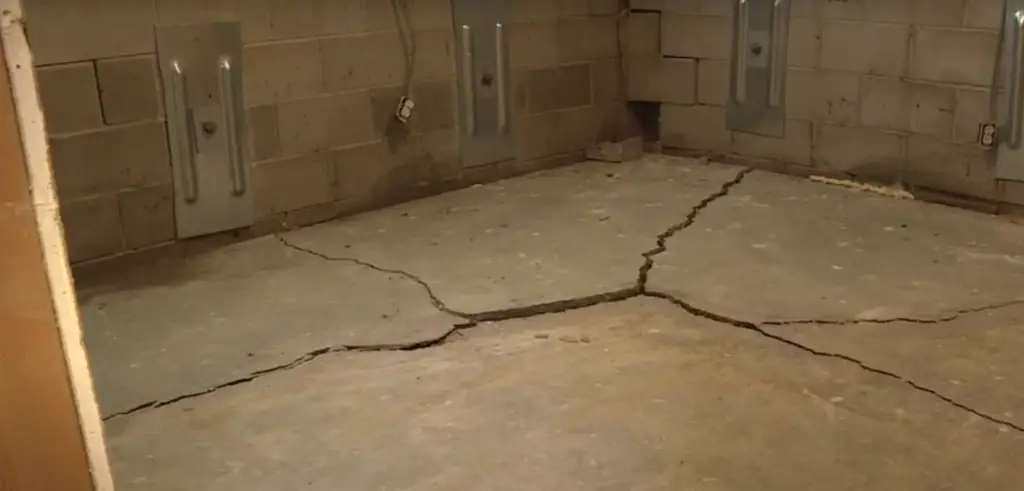
Will My House Fall Down?
The thought of your home literally crumbling beneath you can seem like a scary prospect, but is it actually possible for your house to collapse due to foundation issues? It’s a pretty valid question – after all, the foundation is one of the most vital components of any building.
In short, yes – if left unchecked, certain types of foundation issues can cause a house to become structurally unsound and eventually collapse. The good news is that with careful repair and maintenance, most foundation problems are relatively easy to fix and prevent.
In order to determine whether your home is in danger of collapsing due to a foundation issue, it’s important to have an expert take a look. If you notice any changes in the structure of your home – such as cracks in walls or ceilings, windows that don’t open properly, or doors that stick when opened – these could all be signs of an underlying foundation problem.
If you do find yourself dealing with a potentially serious issue, it’s best to get professional help right away before things become worse. Early intervention can save you money in the long run, as fixing a small problem before it develops into something more serious is usually much more affordable than waiting for the damage to become worse.
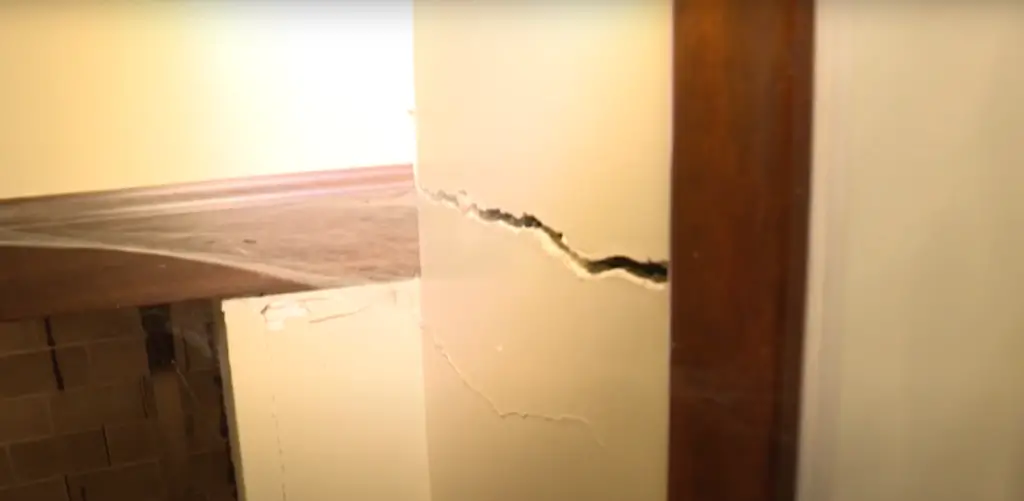
At the end of the day, it’s important to remember that with proper maintenance and care, most problems can be easily prevented – and your home will remain safe and stable for years to come. So don’t forget to have your foundation inspected regularly by an experienced contractor or structural engineer – it could save you a lot of hassle down the line!
What are the warning signs of foundation damage?
Look for cracks in your foundation walls, or gaps between the wall and floor; these are usually the first signs of structural problems. If you see any stair-step cracking or horizontal/vertical displacement in your foundation walls, this is a sign that something serious is happening with your foundation and should be inspected by a professional as soon as possible. Other common signs include doors and windows that no longer fit their frames or floors that slope in different directions.
If you’re noticing any of these warning signs in your home, it’s time to call an expert! They can accurately assess the situation and recommend the best course of action. They may suggest a repair to the foundation, or even advise that the house be demolished if the damage is too severe and poses an imminent risk of collapse.
By taking these warning signs seriously, you can protect yourself, your home, and your family from danger. Don’t wait until it’s too late – address any issues with your foundation as soon as possible!
Compare Stucco Cracks vs Structural Cracks
Stucco cracks and structural cracks look very similar, but they are two completely different things. Structural cracks indicate a serious problem with your foundation, while stucco cracks can be caused by temperature fluctuations and other non-structural issues.
Stucco Cracks
Stucco cracks typically appear in the form of thin, hairline cracks along walls and siding. They can be caused by temperature fluctuations or from water damage due to leaks in your home’s roof, windows, or doors. Stucco cracks generally don’t indicate any major structural issue with your foundation; however, it’s still important to repair them promptly as they can allow moisture into your home and lead to other problems down the line.
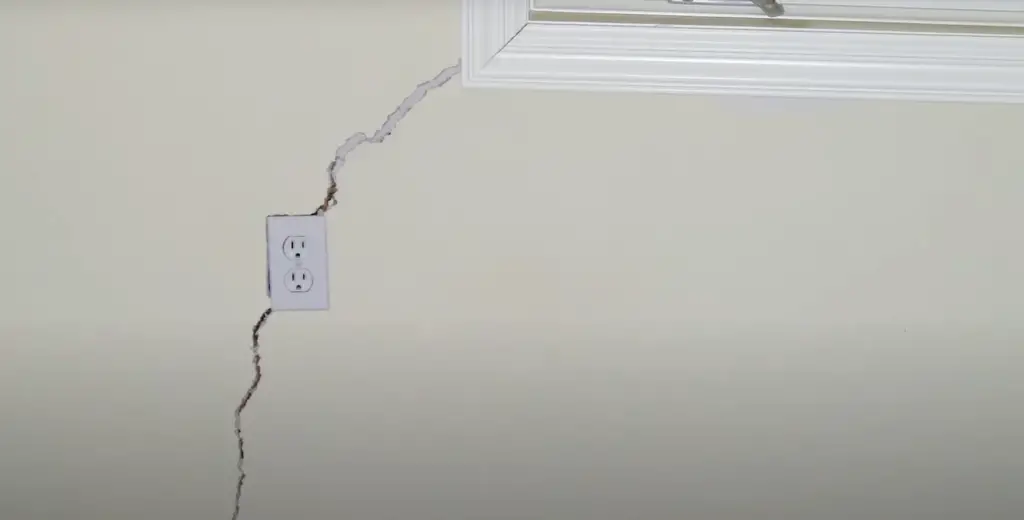
Structural Cracks
Structural cracks are wider than stucco cracks, often 2-3 millimeters or more in width. These types of cracks usually run horizontally or diagonally along a wall at different angles and are a sign of a serious underlying problem with your foundation. Structural cracks can be caused by soil erosion or settling, which can lead to the walls of your home shifting and eventually collapsing if not addressed in a timely manner.
In most cases, structural cracks need to be repaired by professional contractors as they require more intricate repairs than stucco cracks. If you notice any kind of crack on the walls or siding of your home, it’s best to have a professional come inspect it and determine the cause so that it can be properly addressed.
If left unchecked, structural issues with your foundation could potentially lead to major damage to your home and even its collapse if not taken care of in time.
If you’re worried that you might have a structural issue with your foundation, it’s best to reach out to a professional contractor as soon as possible so they can assess the situation and advise on the best course of action. With the right repairs, you can avoid major damage to your home and keep it safe for years to come.
How Long Will It Take To Make Repairs?
The amount of time it will take to repair a foundation issue can vary drastically depending on the severity of the problem. Minor repairs may only take a few days but if there is major damage then you could be looking at weeks or even months for repairs to be completed. In some cases, the extent of the damage might make it impossible to fix the issue and a new foundation would need to be constructed.
If your house has experienced significant structural damage due to foundation issues, it’s important to get an inspection done right away as this can help determine how much work will need to be done in order to fix the problem. Depending on what kind of repairs are necessary, you may want to consider getting a professional engineer involved so they can provide an accurate assessment of the issue and help you determine the best course of action.
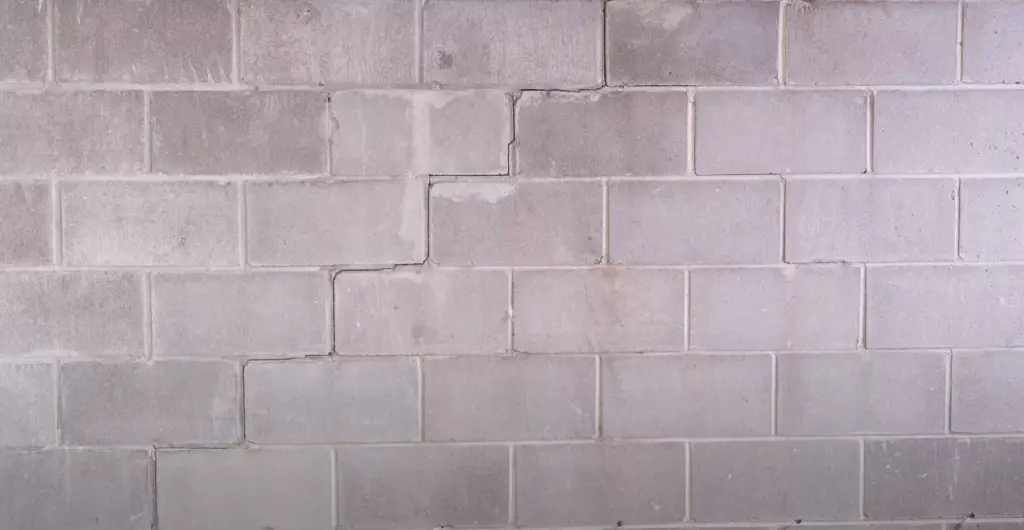
It’s also important to note that foundation repair can be expensive, so it’s important to factor in the cost when making the decision on whether or not you should take on the repairs. If you do decide to move forward with the project, make sure to shop around for quotes from different contractors to ensure that you’re getting a fair price for the work needed. [2]
How Much Will It Cost To Fix Foundation Issues?
The cost of fixing foundation issues can vary depending on the extent of the damage. Generally speaking, it can range from a few thousand dollars to more than ten thousand dollars. Smaller repairs may include minor waterproofing or reporting (replacing damaged mortar), while larger projects can involve underpinning and structural repair work. The cost will also depend on the type of material used for the repair work, such as concrete blocks or steel beams, and any additional labor costs associated with the project. It’s important to get multiple estimates from qualified contractors so you can compare prices before making a decision.
Additionally, some insurance policies may cover part or all of the repair costs associated with foundation issues, but this often depends on the cause of the damage. Make sure to review your policy and contact your insurance provider if you think you may be eligible for a claim.
Finally, it’s important to remember that foundation issues can worsen over time if they’re not addressed quickly, so it’s best to consult with an expert right away rather than waiting until the problem becomes more serious and costly to fix. Taking proactive measures now will save money, stress and hassle in the future.
Other Ideas To Think About
While there are many potential factors that can cause your house to collapse, you should also consider other solutions before making a decision about repairing or replacing your foundation. Here are some of the things you should think about:
- Can the damage be repaired? If so, is it practical and cost effective to do so?
- Are there any structural modifications that could help prevent a full collapse in the future?
- Is your house situated on an area prone to seismic activity or flooding? Major natural disasters can increase the likelihood of damage and subsequent collapse.
- How old is your home’s foundation? Older homes may need more extensive repairs or replacements due to age.
- What is the condition of your home’s exterior? Is it in danger of rotting or other water damage? Poor drainage systems can cause a lot of issues with foundations, especially over time.
By understanding all the potential factors that could lead to foundation failure and subsequent house collapse, you can make an informed decision on what measures to take.
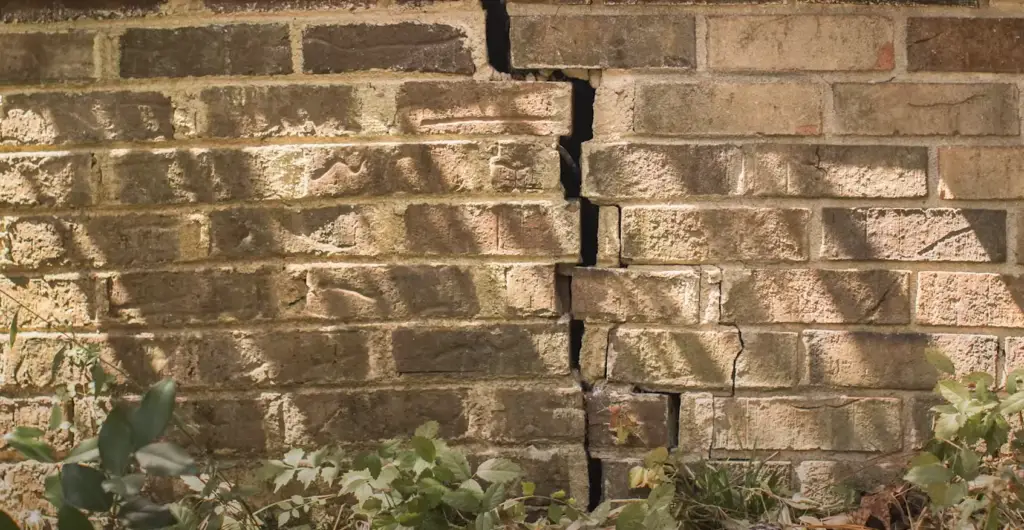
When to Call a Professional?
If you suspect your home is at risk of foundation failure, it’s essential to call in a professional. They can assess the damage and recommend solutions that are tailored to your situation. If the problem isn’t too severe, they may be able to make repairs on-site. In more serious cases, they may need to excavate the area around the foundation and carry out extensive structural work.
No matter what kind of repair is needed, getting an experienced team on board is vital for ensuring long-term success and stability. Make sure you find someone who has experience with this type of project and references from previous jobs – both residential and commercial.
FAQ
What are the signs of faulty foundation?
There are several signs that indicate a faulty foundation and that your home may be at risk of collapse. These include uneven floors, cracks in walls and ceilings, doors that won’t close properly, windows that stick or rattle, gaps between a wall and the floor, and water leakage in the basement. If you notice any of these signs it’s important to get an inspection by a professional who can assess the severity of the problem.
What happens to a building with a poor foundation?
A building with a poor foundation may start to show signs of wear and tear from the ground up. Minor cracks in walls, ceilings, or floors can be an early sign of foundation failure. If the issue is not addressed quickly and correctly, these small problems can worsen over time and lead to serious structural damage. This could eventually cause the entire home or structure to collapse.
Foundation failures can also occur because of improper installation or material defects during construction. Poor maintenance is another major factor that can cause a house’s foundation to fail; if gutters become blocked or faulty drainage systems aren’t repaired, water can seep into the soil and put too much pressure on the foundation of a home. [3]
It’s important to remember that even a small amount of damage can lead to significant problems over time if not addressed quickly and professionally. If you suspect that your home’s foundation is failing, it’s best to contact an expert right away in order to ensure the safety and stability of your building before it’s too late. It’s also wise to get regular inspections done as preventative maintenance, so you can detect any potential issues early on and address them before they become more serious.
What destroys the foundation of a house?
Unfortunately, there are many things that can destroy a foundation’s integrity over time and cause it to fail. Some of these include water damage, poor construction practices, soil erosion and expansive clay soils.
When weakened foundations don’t get addressed in a timely manner, they may ultimately lead to severe issues such as cracking walls or doors that won’t close properly. In extreme cases, a weakened foundation can cause an entire building to collapse or become structurally unsound which puts those living in the home at risk for injury.
What causes the most damage to structural foundations?
In a nutshell, the primary causes of damage to structural foundations are moisture/water and soil.
Moisture can cause a variety of issues with your foundation if it’s not managed properly. Moisture may travel up from the ground, seep in through unsealed walls or windows, or accumulate due to poor surface drainage around the outside of the house. Over time, this excess water can lead to foundation issues such as cracking in the slab, settling of soil beneath the foundation, and even deterioration of footings and piers that support it.
Soil conditions can also pose a problem for structural foundations – especially if they experience rapid changes in volume due to weather patterns or hydrostatic pressure issues. Clay soils or expansive soils are different from other types of soil in that they can swell when wet, and shrink when dry. This constant cycle of swelling and shrinking can put a tremendous amount of pressure on your foundation walls and cause them to crack, settle, bow inward, or even collapse. [4]
If you’re concerned about the integrity of your foundation due to moisture or soil issues, it’s best to consult a professional as soon as possible. With their help, you may be able to implement preventative measures before any significant damage is done – saving you time and money in the long run.
Useful Video: What Kind of Foundation Cracks Are BAD??
Conclusion
When it comes to whether a house can collapse due to foundation issues, the answer is yes. The condition of your foundation and the extent of any damage can greatly impact the stability of your home and, in some cases, cause structural failure. To ensure that your house remains safe and sound, it’s important to have regular inspections done on your foundation to spot any signs of damage or weakening before they become a bigger problem. Consulting with an experienced professional can also provide you with invaluable advice on how best to address any current or potential issues with your foundation. When dealing with a damaged or weakened foundation, taking preventative steps early on is always advisable in order to minimize costly repairs and potential disasters down the line.
Thank you for reading this guide and we hope that it was informative and helpful.
References
- https://www.royalshellrealestate.com/blog/What-is-considered-a-foundation-problem
- https://insideandoutpropertyinspectors.com/can-a-house-collapse-from-foundation-issues/
- https://www.peakstructural.com/resources/foundation-repair/4-dangers-of-neglecting-your-foundation/
- https://www.2-10.com/blog/one-of-the-main-causes-of-structural-damages-in-a-home-part-1/





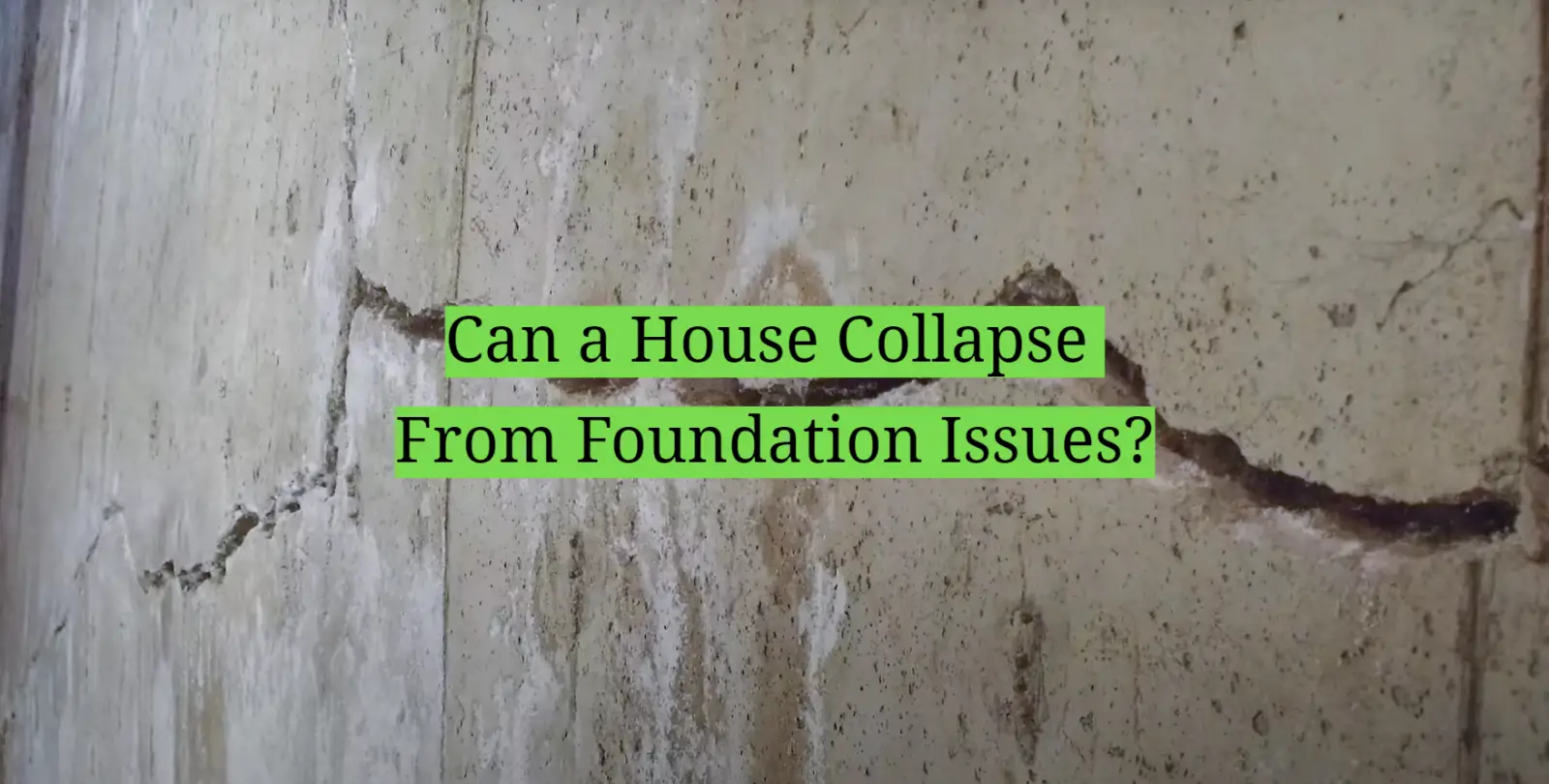





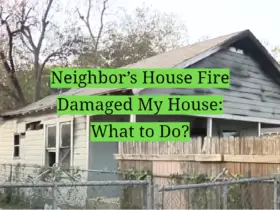


Leave a Reply